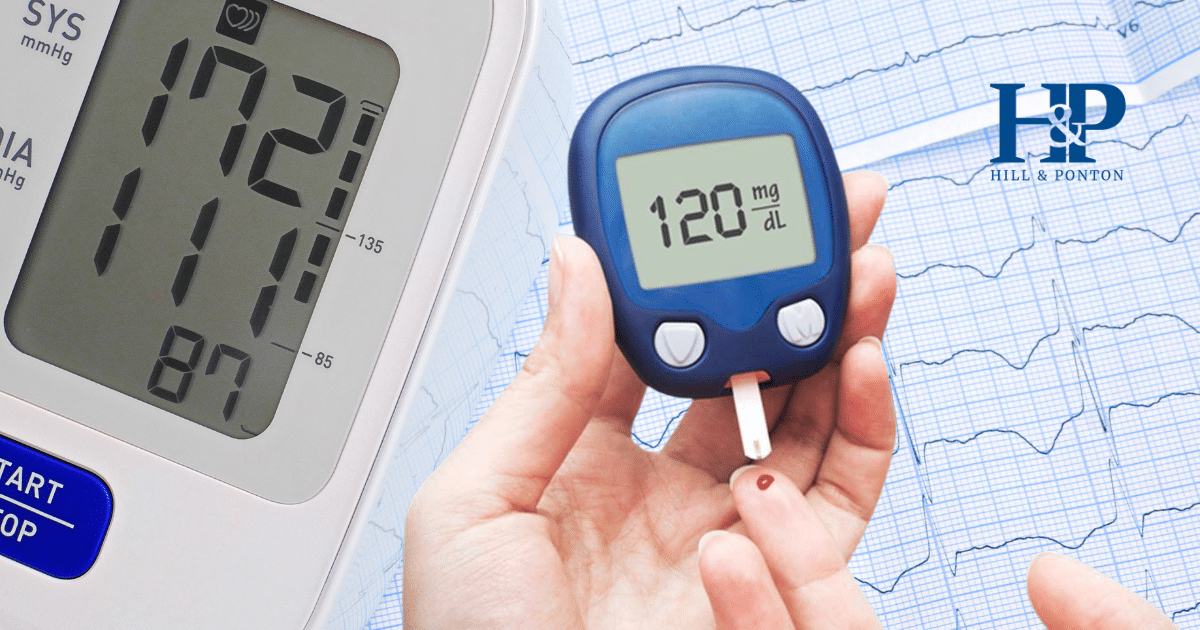For veterans seeking VA disability benefits, establishing a secondary service connection can significantly impact their overall compensation. Hypertension and diabetes are two conditions that often coexist and can exacerbate each other, making it possible to establish one as secondary to the other.
Understanding Secondary Service Connection
A secondary service connection occurs when a service-connected condition causes or aggravates another disability. To establish a secondary connection, veterans must provide:
- A current diagnosis of the secondary condition.
- Medical evidence demonstrating the link between the primary service-connected condition and the secondary condition.
- A nexus opinion from a qualified medical professional that supports the connection between the two conditions.
Establishing the Link Between Hypertension and Diabetes
Whether proving that hypertension is secondary to diabetes or vice versa, the process for establishing a secondary connection involves similar steps. The key difference lies in the specific medical evidence and reasoning that must be provided to demonstrate how one condition has led to or aggravated the other.
How to Prove the Connection
- Clearly document the diagnosis and progression of both conditions. It’s crucial to establish a timeline that shows how one condition (either diabetes or hypertension) led to the development or worsening of the other. This should include details such as when the veteran was first diagnosed with the primary condition and when symptoms of the secondary condition began to appear.
- A detailed nexus letter from a medical professional is essential. The letter should explain the physiological connection between the two conditions. For example, how diabetes can cause arterial damage leading to hypertension, or how chronic high blood pressure can result in insulin resistance, contributing to the onset of diabetes.
- Strengthen the claim by citing medical research that supports the link between the two conditions. Whether showing how diabetes increases the risk of hypertension or how hypertension can contribute to diabetes, relevant studies can provide a solid foundation for the claim.
Hypertension Secondary to Diabetes
Diabetes, particularly type 2, increases the risk of developing hypertension. This condition can damage arteries, making them more prone to hardening (atherosclerosis), which often leads to high blood pressure. Additionally, insulin resistance—a hallmark of type 2 diabetes—can cause the kidneys to retain more sodium, increasing blood volume and pressure.
Veterans with diabetes who develop hypertension can establish a secondary service connection by demonstrating that their hypertension is either caused by or aggravated by their service-connected diabetes.
Get Help With Your VA Disability Claim
Winning Service Connection for Hypertension Secondary to Diabetes: Case Example
In this case, a veteran who served from September 1966 to February 1970 successfully appealed for service connection for hypertension as secondary to his already service-connected type 2 diabetes mellitus. Initially, the veteran’s hypertension claim was denied, but through a series of appeals and the submission of compelling medical evidence, the Board of Veterans’ Appeals ultimately granted service connection.
The Board found that the veteran’s service-connected diabetes was a significant etiological factor in the development of his hypertension. As a result, the Board granted service connection for hypertension secondary to type 2 diabetes mellitus.
Key Factors That Contributed to Winning the Claim :
- Comprehensive Medical Evidence: The veteran’s claim was supported by detailed medical records and opinions. The veteran’s private physician, Dr. L provided a pivotal statement indicating that the veteran had been treated for diabetes many years before being diagnosed with hypertension. He also noted signs of kidney dysfunction, which were linked to the veteran’s diabetes and contributed to the development of hypertension.
- Inadequacy of VA Examination Reports: The Board found that previous VA examiners’ opinions were less credible because they relied on inaccurate factual premises or lacked adequate rationale. For instance, one VA examiner incorrectly suggested that the veteran’s hypertension predated his diabetes, while another failed to convincingly explain why hypertension was more likely due to obesity than diabetes.
- Private Physician’s Persuasive Opinion: Dr. L’s detailed opinion was crucial. He cited specific medical evidence, such as the presence of trace protein in the veteran’s urine and elevated BUN levels, which indicated kidney damage linked to diabetes. This damage, in turn, was identified as a causative factor for hypertension.
This case underscores the importance of thorough medical documentation, credible medical opinions, and the need for veterans to challenge inadequate VA examination reports when pursuing secondary service connection claims.
Diabetes Secondary to Hypertension
Although less common, hypertension can contribute to the development of diabetes. Chronic high blood pressure can lead to insulin resistance, a precursor to type 2 diabetes. Moreover, hypertension can damage the blood vessels in the pancreas, impairing insulin production and regulation.
Veterans who have a service-connected hypertension diagnosis and later develop diabetes can establish a secondary service connection for their diabetes by showing how hypertension contributed to this condition.
Establishing a secondary service connection between hypertension and diabetes requires thorough medical evidence and a clear understanding of how these conditions are interrelated. By gathering the appropriate documentation, securing a strong nexus letter, and supporting the claim with relevant research, veterans can strengthen their case for additional VA disability benefits.




